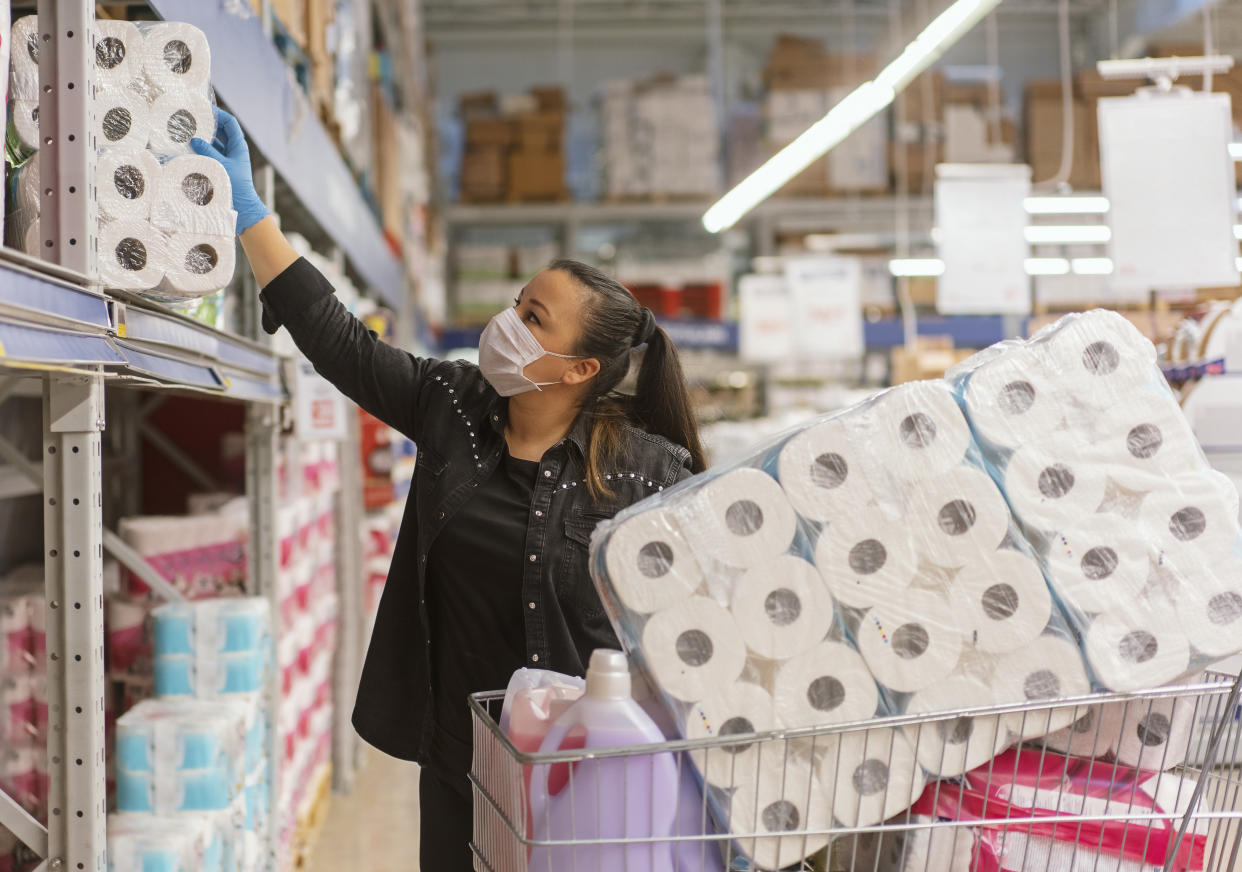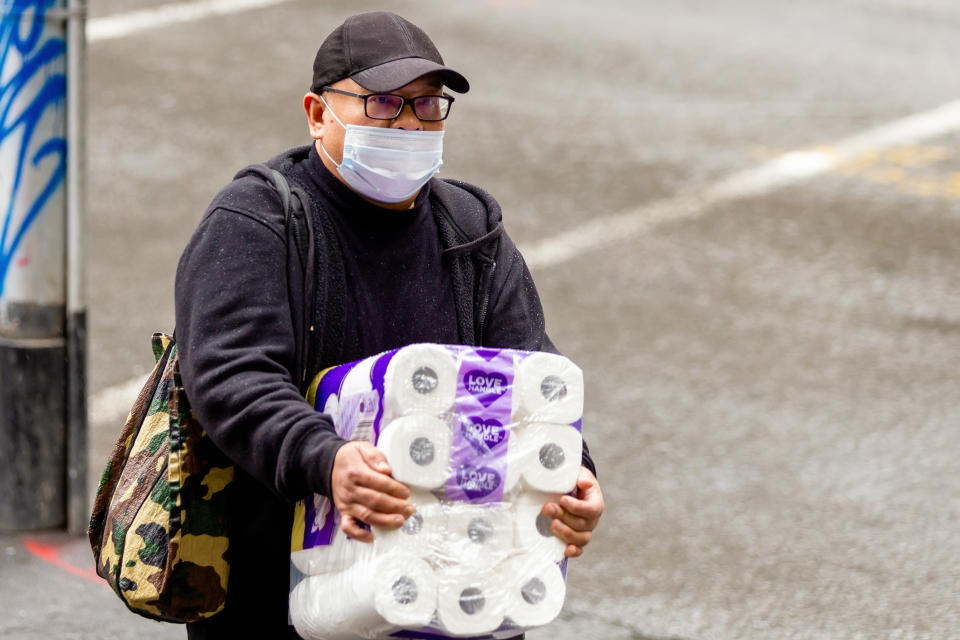Coronavirus: Conscientious and ‘emotional’ people more likely to stockpile toilet paper

Conscientious and “emotional” people are more likely to stockpile toilet paper amid the coronavirus pandemic, research suggests.
With people facing lockdown and concerns rising over disrupted trade, some companies reported a 700% rise in toilet paper sales at the start of the outbreak.
Despite appeals to buy no more than you need, the hoarding continued, making some curious as to the psychology behind panic buying.
To learn more, scientists from the University of Saint Gallen in Switzerland surveyed over 1,000 adults across 35 countries.
After comparing personality tracts against toilet paper consumption, the team found “emotionality” and “conscientiousness” were linked to panic buying the essential.

What causes people to panic buy toilet people?
Panic buying toilet paper may seem selfish.
In the midst of an unprecedented pandemic, however, hoarding may be a way of coping with an “overgeneralisation of disgust”, wrote the scientists in the journal PLOS One.
Although the coronavirus mainly spreads face to face via coughs and sneezes, there is evidence it is also transmitted in faeces.
Toilet paper may therefore be a “symbol of safety alleviating the perceived threat”.
The scientists argued “even the most humble and moral individuals might stockpile toilet paper as long as they feel sufficiently threatened by the pandemic”.
To learn more, the team recruited 1,029 volunteers via social media and had them complete the Brief HEXACO Inventory, which ranks six broad personality traits.
Information was also collected on the individuals’ concerns over the coronavirus and how much toilet paper they had consumed in recent weeks.
Results revealed those who felt the most threatened by the outbreak tended to stockpile more toilet paper.
When it came down to personality type, emotionality – generally worrying a lot and feeling anxious – was linked to the panic buying.
Conscientiousness—organisation, diligence, perfectionism and prudence – was also associated with the habit.
The scientists also found older people stockpiled more toilet paper than their younger counterparts.
Elderly people are generally more at risk of coronavirus complications, they pointed out.
The American volunteers panic bought more than the Europeans, but went shopping for the essential less.
This may come down to toilet paper packages in the US containing up to 36 rolls compared to just eight to 16 in Europe.
The scientists stressed the factors they identified explained only 12% of the variability in toilet paper stockpiling, suggesting something else is at play.
Ahead of further research, they concluded “low anxiety and little desire to plan ahead are the best psychological protective factors to refrain from irrationally stockpiling limited resources in the time of a health crisis”.
What is the coronavirus?
The coronavirus is one of seven strains of a virus class that are known to infect humans.
Others cause everything from the common cold to severe acute respiratory syndrome (Sars), which killed 774 people during its 2002/3 outbreak.
Since the coronavirus outbreak was identified at the end of 2019, more than 7 million cases have been confirmed worldwide, according to Johns Hopkins University.
Of these cases, over 3 million are known to have recovered.
Globally, the death toll has exceeded 422,000.
As well as spreading in coughs, sneezes and faeces, there is also evidence the coronavirus can survive on surfaces.
Symptoms include fever, cough and a loss of taste or smell.
Early research suggests the coronavirus is mild in four out of five cases, however, it can trigger a respiratory disease called COVID-19.
COVID-19 has no “set” treatment, with most patients naturally fighting it off.
Those requiring hospitalisation are given “supportive care”, like ventilation, while their immune system gets to work.
Officials urge people ward off infection by washing their hands regularly and maintaining social distancing.
Coronavirus: what happened today
Click here to sign up to the latest news, advice and information with our daily Catch-up newsletter
Read more about COVID-19
How to get a coronavirus test if you have symptoms
How easing of lockdown rules affects you
In pictures: How UK school classrooms could look in new normal
How public transport could look after lockdown
How our public spaces will change in the future
Help and advice
Read the full list of official FAQs here
10 tips from the NHS to help deal with anxiety
What to do if you think you have symptoms



